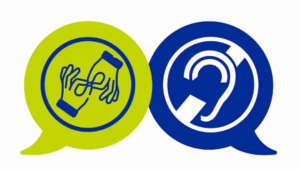One of the most common ethical questions facing interpreters concerns the role of the advocate. We covered appropriate advocacy in this blog about the role of advocacy in interpreting, but it’s impossible to discuss everything. Another facet of advocacy is mandatory reporting. Are interpreters mandatory reporters? When, and to whom should you report? In this installment of our Interpreting Skills series, we’ll explore mandatory reporting in the context of an interpreting assignment.

Mandatory Reporting in Interpreting Settings
So, let’s get right to it: is an interpreter a mandatory reporter? The answer is a grey area: yes and no. “Mandatory Reporting” refers most commonly to child abuse. Teachers, other school workers, healthcare professionals, and foster care workers are obligated to report abuse. The reports should go directly to local authorities and/or county child welfare departments. The general consensus is that interpreters fall under the category of “mandatory reporters” when working in a healthcare setting. For interpreters, however, it’s broader than child abuse. You must report any time you’re told that someone is going to harm themselves or others. To whom interpreters should report is less clear.
Generally, as stated, mandatory reporters call in reports to child welfare or the police. However, modern interpreting theory (most notably The Community Interpreter®: An International Textbook, by Sofía García-Beyaert, Marjory A. Bancroft, Katharine Allen, Giovanna Carriero-Contreras, Denis Socarrás-Estrada) suggests that the best course of action is to report instead to the client for whom you’ve been contracted. If you’re working with an agency, this person is listed as the “English Speaker” in the work order. They could be the doctor, lawyer, therapist, caseworker, etc. to whom your non-English speaker is assigned.
Procedure for Reporting
If you find yourself in a situation requiring a report, follow this procedure:
- Ask to speak with the client privately. If the session is over, speak to the receptionist and ask through their office.
- If the client is unavailable, move to a private space, call your agency, and discuss your concern. Include the specific words the non-English speaker used so your agency can follow up with the client.
- Consider filing an official incident report to provide a written record of what occurred.
- Be sure that you’re in a private location. If possible, a room with a closed door.
- Discuss your concern, with the specific words the non-English speaker used.
- Call your agency and let them know that you had to speak with the client after the session to report something. If you’ve already spoken with the client, you don’t have to give us all the details–but a brief overview is useful. “I just wanted to let you know that I had to speak with the doctor after the session. The non-English speaker told me as we were walking out that she was being abused.” This lets your agency know what happened in case the client calls, so they’re up to date. It also lets your agency follow up appropriately.
A final, important point: as interpreters, we need to wait until a non-English speaker has talked about harm to themselves or others. You must hear them speak about it before you can report it to the relevant authority or your agency. A suspicion isn’t enough in our line of work. Please keep in mind, though, that if you have a suspicion, the client for whom you interpreted likely does too. They’re in a much more appropriate position to follow up. Because of the boundaries of our role as interpreters, we must wait for verbal confirmation to make a report.
Global Arena’s 16-hour Interpreter Training Program
Looking for a place to discuss interpreting topics with peers while building a foundation for your career? Do you have more questions about appropriate advocacy in interpreting? Global Arena’s 16-hour interpreting program covers the four main types of interpreting assignments: medical, legal, school, and business. Our goal is to provide knowledge and practice opportunities to interpreters just starting in the industry.
Experienced interpreters also benefit from brushing up on their skills and industry knowledge. The course is discussion and activity-based to keep it dynamic and engaging. The training takes place over zoom, on four consecutive days. It’s at the same time each day: from 8:30 am- 12:30 PM EST. Participants receive a welcome packet with reference materials, including activity pages, articles, and glossaries. You’ll also receive a certificate of completion upon passing exam score: useful for interpreting applications and resume-building. Learn more about the Global Arena Interpreting Program.




